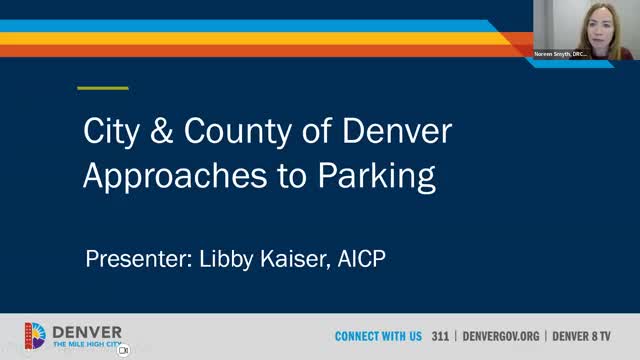Denver eliminates citywide parking minimums, pairs code changes with curbside and TDM programs
Get AI-powered insights, summaries, and transcripts
Subscribe
Summary
The City and County of Denver removed minimum vehicle parking requirements citywide after a state law change and is rolling complementary curbside management, residential permit zones and Transportation Demand Management measures to manage spillover and resident access.
Libby Kaiser, principal city planner for the City and County of Denver, described the city's zoning code update to remove minimum vehicle parking requirements citywide rather than only complying with a state law that applies in transit service areas.
"We didn't want to just comply with state law and add more complexity to the zoning code, but instead decided that we were finally going to eliminate parking requirements citywide," Kaiser said. She said the amended code removed exceptions, alternatives and reductions and consolidated bicycle parking into a single article while retaining some downtown maximums and a 110% rule near some transit stations.
Kaiser told the panel the change reduced administrative burden — staff previously spent hundreds of hours annually calculating parking obligations — and that outreach and partnerships with city council members, the Department of Transportation and Infrastructure and climate and advocacy groups generated public support (about 70% of comments were in favor, she said).
To manage on‑street impacts, Denver is expanding curbside area management tools — time limits, paid parking and residential parking permits — and its Transportation Demand Management program includes tiers of requirements for larger projects. Kaiser said the city expects these tools to address spillover, improve resident access and align parking policy with housing and multimodal goals.
